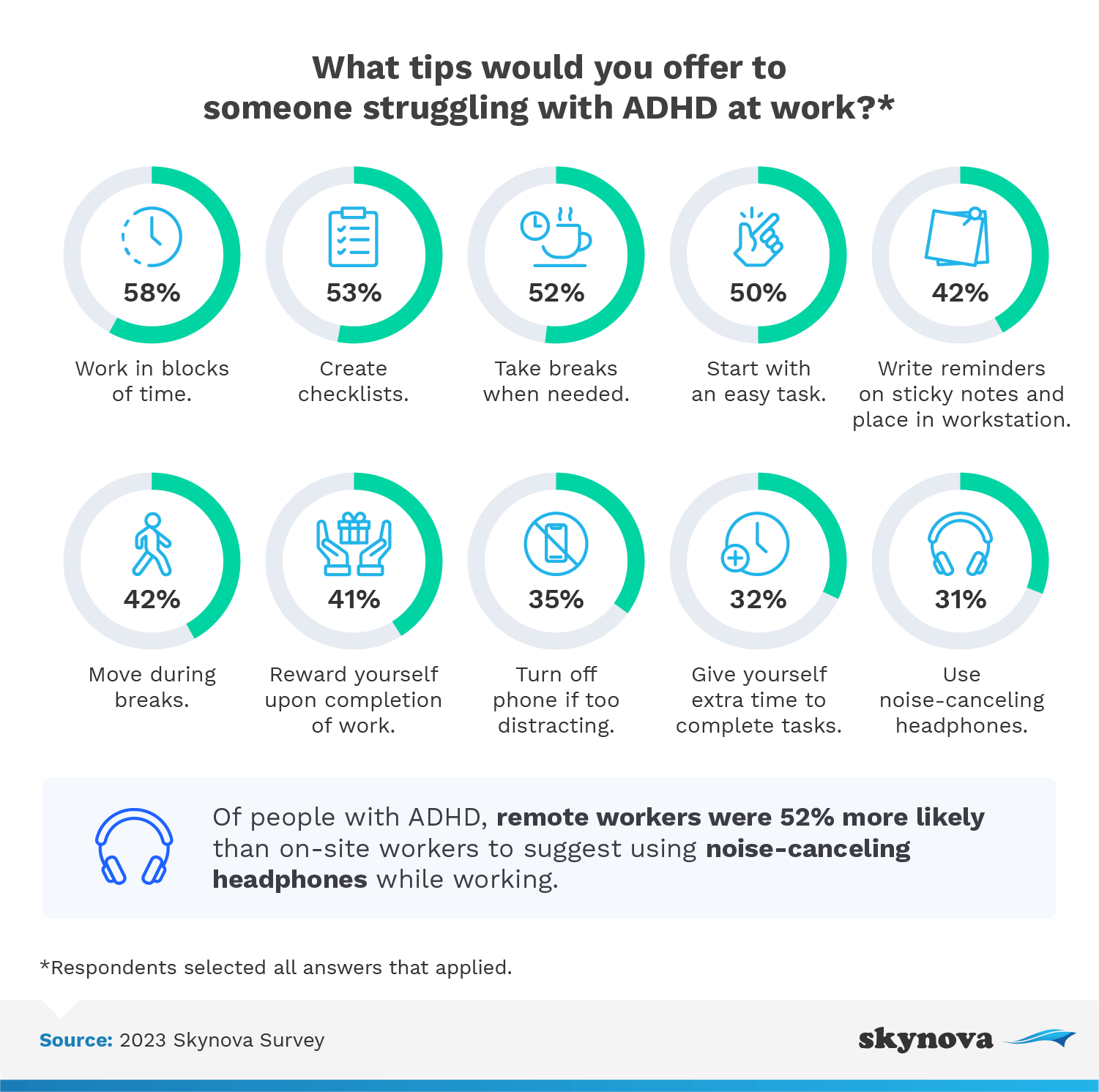According to a recent survey, approximately two-thirds of workers with Attention Deficit Hyperactivity Disorder (ADHD) battle with their profession every day.
The study comprised over a thousand participants, all of whom identified as having this disease. They were questioned about their work affairs and how their disorder affected their productivity and job fulfillment.
The results revealed that eighty percent of them reported difficulties in finishing assignments and staying immersed at work. Additionally, approx. sixty percent of them complained about struggling with the time management, which is key skills required for success in the organization.
The study also discovered that only 47% of the individuals felt that their supervisors provided adequate accommodations for their illness, such as relaxed labor hours, additional recesses, or modified spaces. This absence of help can lead to advanced stress and frustration for employees with this disease which can further negatively impact their job performance.
The findings of this investigation highlight the need for supervisors to be more aware of the challenges faced by the people working under them and to provide the necessary accommodation and support to help them succeed in the workplace.
There are a variety of accommodations that they can give, such as allowing for relaxed work programs, providing sound-removing headphones, or cracking down chores into smaller, more manageable phases. Additionally, providing access to resources such as counseling or coaching can be beneficial for workers with Attention Deficit Hyperactivity Disorder.
They also need to understand that working people with these disorders have unique strengths that can be an asset in the workplace, such as creativity and the ability to think outside the box. With the correct support and accommodation, these individuals can be valuable contributors to their organization.
However, the burden should not solely be on employers to provide accommodations. Employees with this illness can also protective measures to manage their condition and improve their productivity, such as cracking down tasks into feasible stages, using visual support and reminders, or finding a work environment that is conducive to their needs.
Overall, the survey results shed light on the challenges faced by individuals with Attention Deficit Hyperactivity Disorder in organizations and the need for supervisors to deliver accommodations and support to help them succeed. By recognizing the unique strengths and challenges of employees with this disorder, employers can create a more inclusive and productive work environment for everyone.
Take a look at the infographics below for more information on ADHD at workplace, which comes courtesy of Skynova.
Read next: People Struggling With Inflation Are Likely To Set Up Alternate Streams Of Income To Make A Living, New Study Claims
The study comprised over a thousand participants, all of whom identified as having this disease. They were questioned about their work affairs and how their disorder affected their productivity and job fulfillment.
The results revealed that eighty percent of them reported difficulties in finishing assignments and staying immersed at work. Additionally, approx. sixty percent of them complained about struggling with the time management, which is key skills required for success in the organization.
The study also discovered that only 47% of the individuals felt that their supervisors provided adequate accommodations for their illness, such as relaxed labor hours, additional recesses, or modified spaces. This absence of help can lead to advanced stress and frustration for employees with this disease which can further negatively impact their job performance.
The findings of this investigation highlight the need for supervisors to be more aware of the challenges faced by the people working under them and to provide the necessary accommodation and support to help them succeed in the workplace.
There are a variety of accommodations that they can give, such as allowing for relaxed work programs, providing sound-removing headphones, or cracking down chores into smaller, more manageable phases. Additionally, providing access to resources such as counseling or coaching can be beneficial for workers with Attention Deficit Hyperactivity Disorder.
They also need to understand that working people with these disorders have unique strengths that can be an asset in the workplace, such as creativity and the ability to think outside the box. With the correct support and accommodation, these individuals can be valuable contributors to their organization.
However, the burden should not solely be on employers to provide accommodations. Employees with this illness can also protective measures to manage their condition and improve their productivity, such as cracking down tasks into feasible stages, using visual support and reminders, or finding a work environment that is conducive to their needs.
Overall, the survey results shed light on the challenges faced by individuals with Attention Deficit Hyperactivity Disorder in organizations and the need for supervisors to deliver accommodations and support to help them succeed. By recognizing the unique strengths and challenges of employees with this disorder, employers can create a more inclusive and productive work environment for everyone.
Take a look at the infographics below for more information on ADHD at workplace, which comes courtesy of Skynova.
Read next: People Struggling With Inflation Are Likely To Set Up Alternate Streams Of Income To Make A Living, New Study Claims






